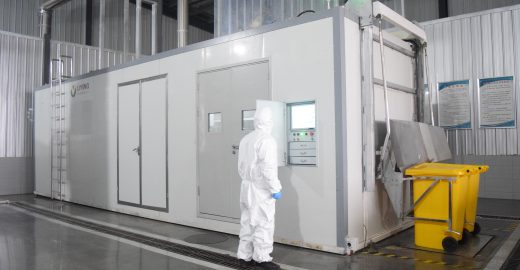Time:
The global opioid abuse crisis has become increasingly severe, resulting in a significant number of deaths each year due to overdoses. Data indicates that some countries and regions, while representing only a small percentage of the global population, consume a disproportionately large amount of opioids. In home healthcare settings, improper management of opioids can easily lead to illegal circulation, accidental overdoses, and environmental pollution.
LI-YING, as a professional manufacturer of microwave medical waste sterilization equipment, provides the following suggestions for safely managing opioids at home to help protect your family’s health and safety:
Designate a specific area for medication storage and keep opioids in a secure medicine cabinet to prevent access by unauthorized individuals or children. Additionally, educate family members on the importance of safely storing opioids to enhance overall awareness.
Conduct regular inspections (e.g., monthly or bi-monthly) of all medications at home to identify and properly dispose of unused or expired opioids. Follow local regulations to determine whether to contact a medical waste disposal service provider for periodic destruction of these drugs to avoid accidental ingestion or environmental contamination.
With increasing emphasis on environmental sustainability, many medical waste disposal services worldwide offer convenient drug take-back programs. Consult your doctor, local pharmacy, or relevant organizations for specific information on how to participate in these initiatives to safely return unused opioids.
If drug take-back programs are not available in your area, LI-YING recommends the following non-professional yet effective method: mix unused opioids with non-edible substances and seal them before disposal. While this method is not as thorough as professional sterilization equipment, it can reduce the risks of accidental ingestion and intentional misuse to some extent.

What is the Polluter Pays…

Forests and wetlands are …

Of course! LI-YING has ex…
PDF Request